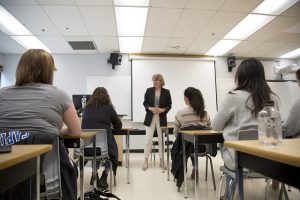There are a number of ideas and thinkers that I turn to for inspiration and affirmation in my teaching.
John Dewey’s thinking forms the bedrock for me. He sees great teaching happening when people who love working with learners get to teach topics and skills that they have a passion for. He sees educational institutions as places to not to simply gain content knowledge but places to learn how to live a good life; to realize one’s full potential. And he sees good learning as hands on, what we know call experiential and problem based.
He shares the idea that education should create social change and reform with Paulo Freire. Freire sees the educator, for all their passion, a facilitator of learning, someone who introduces and guides, not controls. He recognizes good learning and teaching results in “Praxis”; how ideas and values come together with action. I hope all my courses put students on path toward their own praxis; personally satisfying and socially transformative.
Dee Fink also sees learning as more than acquiring knowledge. He defines significant learning as that which includes learning about one’s self, understanding one’s own and others’ feelings, and learning how to learn. These are all essential to putting learning into practice to build the strongest possible self, community and society.
The practice of mindfulness is an additional, essential tool for this to happen. It’s deceptive simplicity hides its power to make see the self and others in the deepest possible way; to manage and understand emotional states and cognitive biases that block our ability to move forward as individuals and societies.

